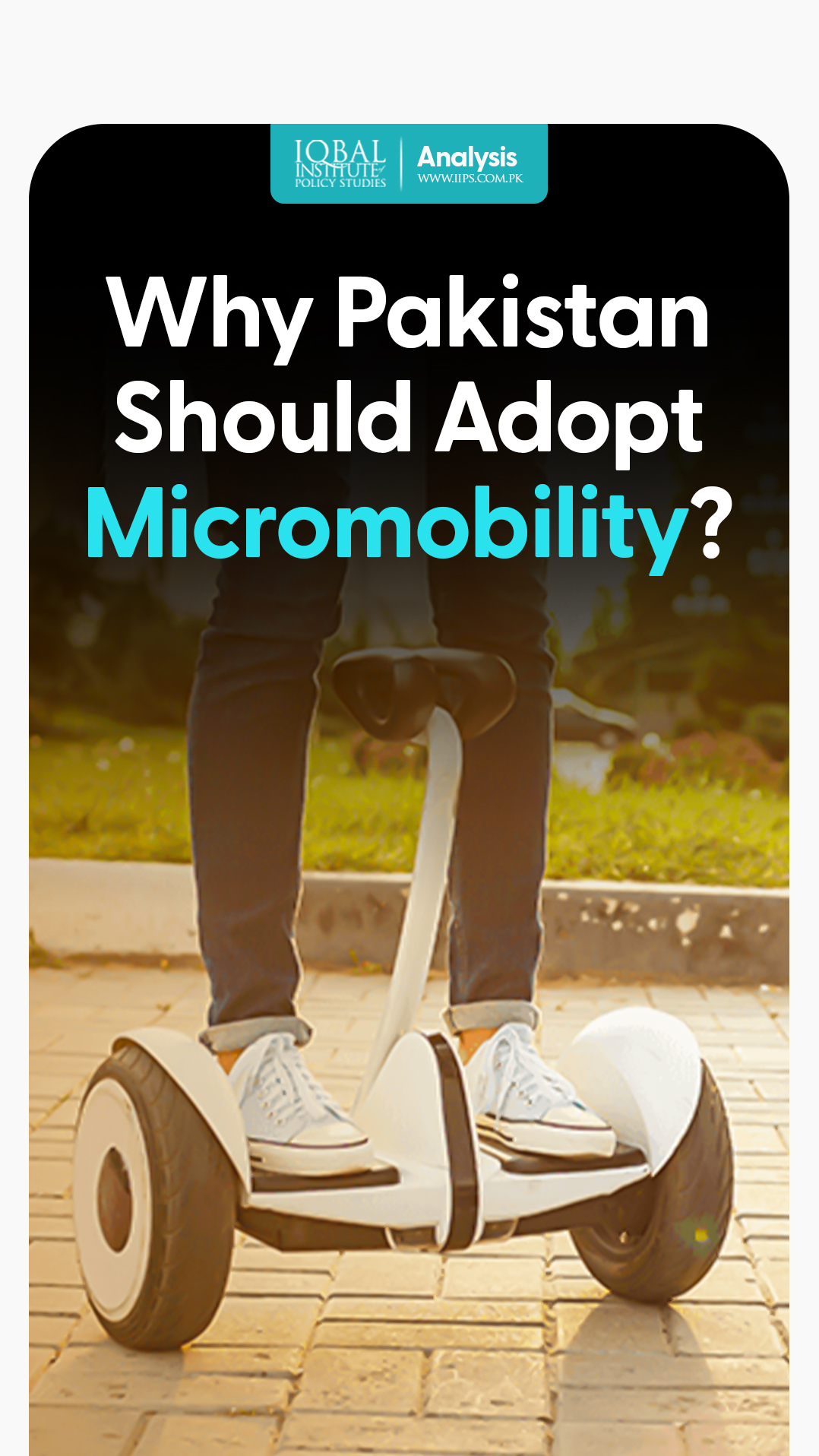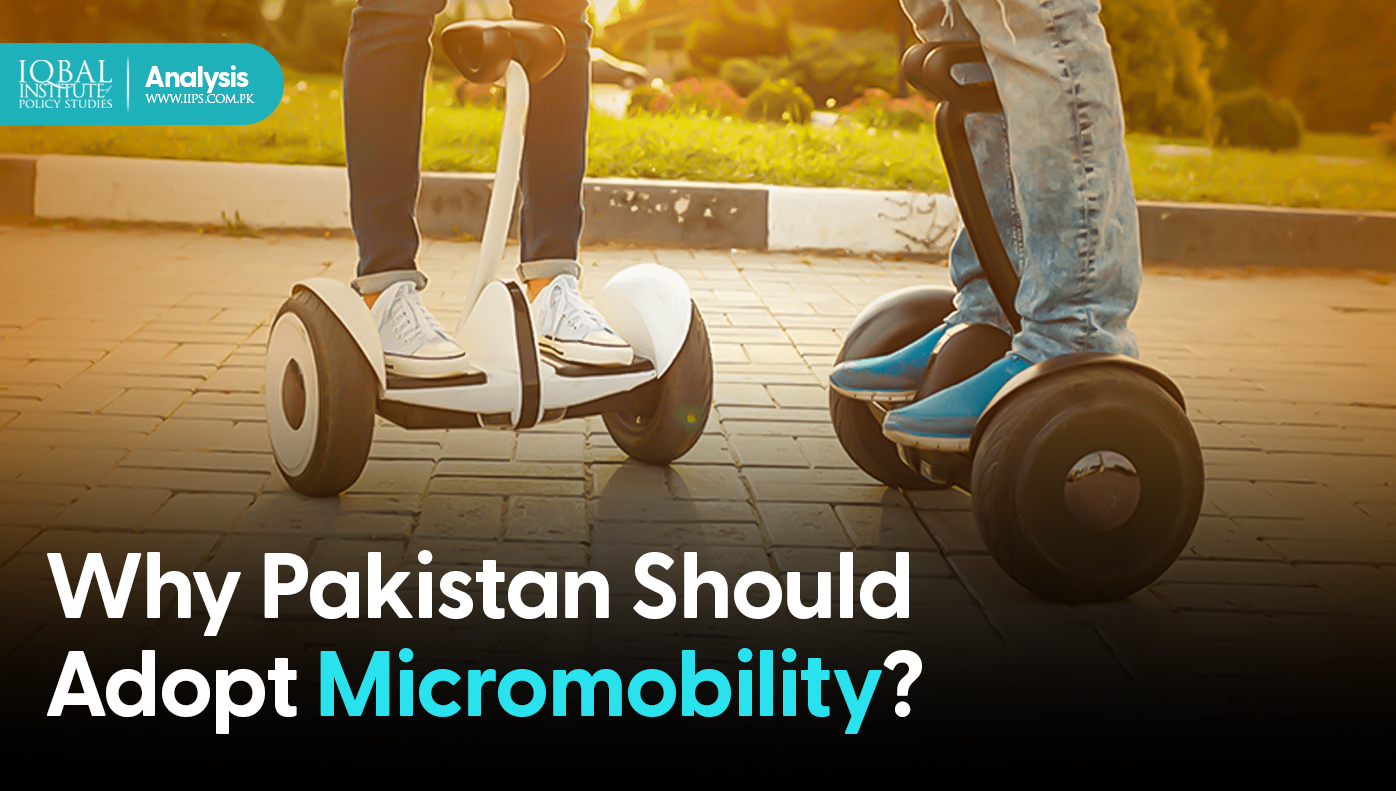The rapid growth and modernisation of urban economies and the subsequent stress on urban transport have created a plethora of obstacles for the urban transportation sector of Pakistan. The current road network does not have the structural capacity to accommodate the increasing number of vehicles.
A majority of the population is dependent on public transport as they do not afford personal vehicles. However, the public transportation system is segregated, causing inter-city travel a huge hassle. The irregularity of transportation services in urban areas has led to increased travelling uncertainty and delays.
Moreover, increased fossil fuel consumption has led to rising air pollution and environmental deterioration in the surrounding areas. The challenges presented by the current urban transport system reflect its unsustainability and compel the government to adopt alternative and more sustainable means.
To overcome these challenges of urban transport, Pakistan should adopt micro-mobility in the country. Micro mobility vehicles typically use bike lanes and travel at limited speeds to carry passengers for short distances. These vehicles are typically shared or rented via a smartphone app. People can pick up these vehicles at a docking station that is programmed to operate within a designated set of geographical boundaries.
Micro mobility vehicles include e-scooters, e-bikes, mopeds, and bicycles. People can use their smartphones to rent a nearby electric scooter for travelling. They are powered by electricity or human energy and are more sustainable than traditional cars and public transportation such as buses and trains. They do not depend on fossil fuels and do not emit greenhouse gases.
For the past several years, Pakistan’s urban transportation sector has faced several issues that impeded its ability to provide transport and commute to citizens. For the lower-income communities, the existing urban infrastructure is inaccessible and unaffordable.
Urban planners need to adopt micro-mobility vehicles to reduce long commuting hours for employment, education, or daily life activities. Furthermore, in a condition like the COVID-19 pandemic, these solo outdoor transportation options can provide a safer and more affordable ride as compared to public transport.



Leave a Reply